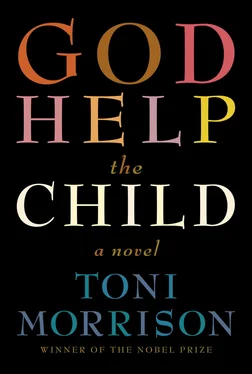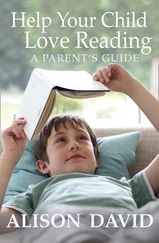Somehow I survived those fifteen years. Had it not been for weekend basketball games and Julie, my cellmate and only friend, I wonder if I would have made it. For the first two years we two, sentenced for child abuse, were avoided in the cafeteria. We were cursed and spit on, and the guards tossed our cell every now and then. After a while they mostly forgot about us. We were at the bottom of the heap of murderers, arsonists, drug dealers, bomb-throwing revolutionaries and the mentally ill. Hurting little children was their idea of the lowest of the low — which is a hoot since the drug dealers could care less about who they poison or how old they were and the arsonists didn’t separate the children from the families they burned. And bomb throwers are not selective or known for precision. If anybody doubted their hatred of me and Julie all they had to do was notice how the love of children was posted everywhere — pictures of babies and kids were all over the cell walls. Anybody’s kid would do.
Julie was serving time for smothering her disabled daughter. The little girl’s photograph was posted on the wall above her bed. Molly. Big head, slack mouth, the loveliest blue eyes in the world. Julie whispered to Molly’s photo at night or whenever she could. Not asking for forgiveness, but telling her dead daughter stories — fairy tales, mostly, all about princesses. I never told her, but I liked those stories too — helped me sleep. We worked in the sewing shop, making uniforms for a medical company that paid us twelve cents an hour. When my fingers got too stiff to work the machine properly, I was moved to the kitchen where I dropped whatever food I didn’t scorch and was sent back to the sewing machines. But Julie wasn’t there. She was in the infirmary after trying to hang herself. She didn’t know how. A few of the cruelest inmates offered to show her. When she returned to population she was different — quiet, sad and not much company. I guess it was the gang rape by four women, then later the loving enslavement she was in with one of the elderly women — a husband called Lover whom no one trifled with. Nobody, guards or inmates, liked me enough to want more than a casual hookup. I was a fighter and too tall, I guess, almost a giant in that place. Fine, I thought — the less licking the better.
In all those years I received exactly two letters from Jack, my husband. The first was a Dear Honey letter that turned into complaints like “I’m being [blacked-out word] here.” Beaten? Fucked? Tortured? What other word would the prison mail censor deny? The second letter began, “What the hell were you thinking, bitch?” No blacked-out word there. I didn’t answer. My parents sent me packages at Christmas and on my birthday: nutritious candy bars, tampons, religious pamphlets and socks. But they never wrote, called or visited. I wasn’t surprised. They were always hard to please. The family Bible was placed on a stand right next to the piano, where my mother played hymns after supper. They never said so, but I suspect they were glad to be rid of me. In their world of God and Devil no innocent person is sentenced to prison.
I mostly did what I was told. And I read a lot. That was one good thing about Decagon — its library. Since real public libraries don’t need or want books anymore, they send them to prisons and old-folks’ homes. Anything other than religious tracts and the Bible were banned in my family’s home. As a teacher I thought I was well read although in college, as an education major, I was not required to read any literature. Until I was in prison I’d never read The Odyssey or Jane Austen. None of it taught me much, but concentrating on escapes, deceits, and who would marry whom was a welcome distraction.
In the taxicab on the first day of my parole I felt like a little kid seeing the world for the first time — houses surrounded by grass so green it hurt my eyes. The flowers seemed to be painted because I didn’t remember roses that shade of lavender or sunflowers so blindingly bright. Everything seemed not just remodeled but brand-new. When I rolled down the window to smell the fresh air, the wind caught my hair — whipping it backward and sideways. That’s when I knew I was free. Wind. Wind fingering, stroking, kissing my hair.
That same day one of the students who testified against me — all grown up now — knocked on the door. I was in a sleazy motel room desperate to eat and sleep in solitude for once. No petty arguments or sex grunts, loud sobs or snores from nearby cells. I don’t think many people appreciate silence or realize that it is as close to music as you can get. Quiet makes some folks fidget or feel too lonely. After fifteen years of noise I was hungry for silence more than food. So I gobbled everything, puked it up and was just about to get some deep solitude when I heard banging on the door.
I didn’t know who she was although something about her eyes seemed familiar. In another world her black skin would have been remarkable, but living all those years in Decagon it wasn’t. After fifteen years of wearing ugly flat shoes, I was more interested in her fashionable ones — alligator or snakeskin, pointy toes and heels so high they were like the stilts of circus clowns. She spoke as if we were friends but I didn’t know what she was talking about or what she wanted until she threw money at me. She was one of the students who testified against me, one of the ones who helped kill me, take my life away. How could she think cash would erase fifteen years of life as death? I blanked. My fists took over as I thought I was battling the Devil. Exactly the one my mother always talked about — seductive but evil. As soon as I threw her out and got rid of her Satan’s disguise, I curled up into a ball on the bed and waited for the police. Waited and waited. None came. If they had bashed in the door they would have seen a woman finally broken down after fifteen years of staying strong. For the first time after all those years, I cried. Cried and cried and cried until I fell asleep. When I woke up I reminded myself that freedom is never free. You have to fight for it. Work for it and make sure you are able to handle it.
Now I think of it, that black girl did do me a favor. Not the foolish one she had in mind, not the money she offered, but the gift that neither of us planned: the release of tears unshed for fifteen years. No more bottling up. No more filth. Now I am clean and able.

A taxi was preferable because parking a Jaguar in that neighborhood was as dim-witted as it was risky. That Booker frequented this part of the city startled Bride. Why here? she wondered. There were music shops in unthreatening neighborhoods, places where tattooed men and young girls dressed like ghouls weren’t huddled on corners or squatting on curbs.
Once the driver stopped at the address she’d given him, and after he told her, “Sorry, lady. I can’t wait here for you,” Bride stepped quickly toward the door of Salvatore Ponti’s Pawn and Repair Palace. Inside it was clear that the word “Palace” was less a mistake than an insanity. Under dusty glass counters row after row of jewelry and watches crouched. A man, good-looking the way elderly men can be, moved down the counter toward her. His jeweler’s eyes swept all he could take in of his customer.
“Mr. Ponti?”
“Call me Sally, sweetheart. What can I do you for?”
Bride waved the overdue notice and explained she’d come to settle the bill and pick up whatever had been repaired. Sally examined the notice. “Oh, yeah,” he said. “Thumb ring. Mouthpiece. They’re in back. Come on.”
Читать дальше












